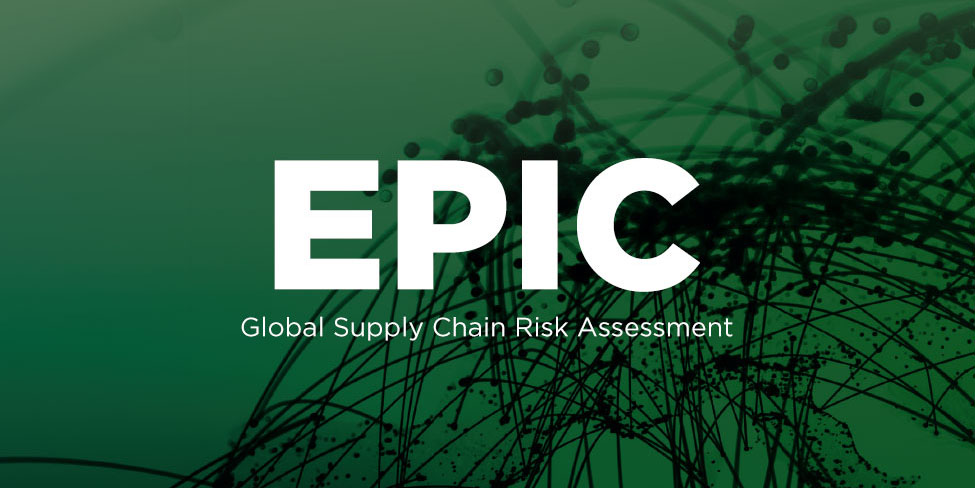The environment – natural, political, business – is increasingly unpredictable. Given such uncertainty, how can supply chain leaders assess risk and measure supply chain capability globally? With the new EPIC Global Supply Chain Readiness Index 2020, these leaders will gain greater visibility into an uncertain world, allowing them to plan and prepare accordingly.
Researchers from the Global Supply Chain Institute (GSCI) in the Haslam College of Business at the University of Tennessee, Knoxville, IHS Markit and the Council of Supply Chain Management Professionals (CSCMP) collaborated on the index.
To determine supply chain readiness, the EPIC Index assesses risks and measures supply chain capability in key markets around the globe by evaluating a holistic set of dynamics that contribute to supply chain performance. The index reviews important factors across four dimensions:
- E: Economy – economic output of the country, its potential for future growth
- P: Politics – political landscape and how well it nurtures supply chain activity
- I: Infrastructure – transportation, utility and telecommunications supporting supply chain activities
- C: Competence – skill levels of workforce and support industries available to perform supply chain activities
The EPIC framework defines and explains these dimensions of the global market environment to estimate their potential impacts on the effectiveness of global supply chain management activities, as well as to identify the characteristics of those dimensions in each region of the world. The framework calculates the levels of “maturity” held by a geographic region in regard to its ability to support supply chain activities. The four EPIC dimensions are then examined using a set of variables associated with each dimension.
Ted Stank, faculty director of the Global Supply Chain Institute, says the teamwork between UT, IHS Markit and CSCMP has produced a valuable instrument for supply chain managers to interpret supply chain viability in specific geographic areas worldwide.
“Operating in the global environment is becoming increasingly complex, especially for supply chain professionals,” Stank said. “To increase global competitiveness, professionals need to be armed with a solid strategy to assess risk.”
Shay Scott, executive director of the Global Supply Chain Institute, said that the index helps companies measure and anticipate supply chain and sourcing risks.
“The EPIC index is designed to provide foundational and contemporary input to supply chain leaders, allowing them to make more informed decisions about how to best operate in diverse markets,” he said.
The EPIC Global Supply Chain Readiness Index 2020 report is derived from a book by a team of faculty from UT and ESSEC School of Management (Paris, France) entitled, Global Supply Chains: Evaluating Regions on an EPIC Framework. With data sets selected by UT and qualitative analysis provided by IHS Markit, the EPIC Report 2020 will update the previous work and give supply chain executives insight about the capabilities of supply chains globally. A PDF of the EPIC Report 2020 is available for download for free.
EPIC Index release webinar
You are invited to participate in the EPIC Global Supply Chain Risk Assessment – Report Release Webinar. It will be held Thursday, April 23, from noon – 1:00 p.m. EDT. Registration is free.
Quantitative and qualitative analysis
Created with unique insight and input from the GSCI and IHS Markit, the EPIC Global Supply Chain Readiness Index 2020 can provide a global view of the capabilities of global supply chains and enable leading supply chain organizations to make better, more informed decisions that will improve the effectiveness and efficiency of their supply chains.
CONTACT:
Scott McNutt, business writer/publicist (865-974-3589, rmcnutt4@utk.edu)
Michelle Painter, marketing director, Global Supply Chain Institute (865-974-8925, painter@utk.edu)
